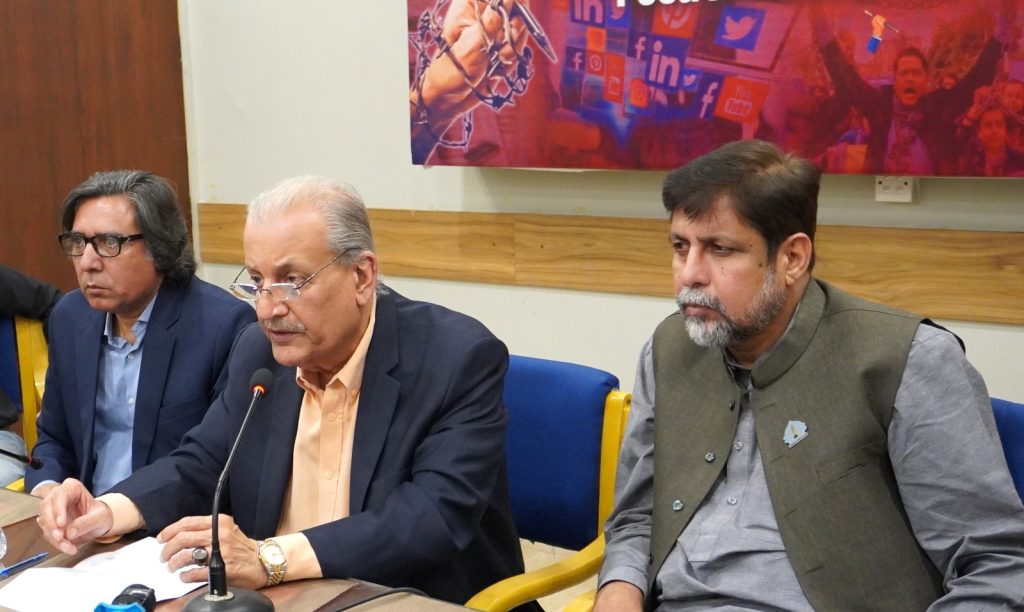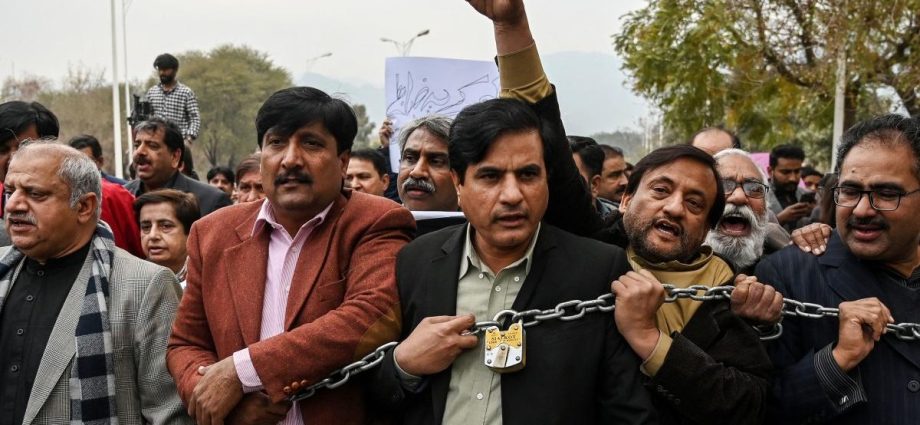
Political leaders, civil society, and journalistic organizations have rejected the PICA law, calling it a black law.
They stated that if the government needs to make laws regarding the media, it should facilitate a dialogue and pass the law in parliament based on collective suggestions.
Mian Raza Rabbani and Barrister Salahuddin emphasized that while the media should not have unrestricted freedom, there should be an editorial mechanism in place.
They expect the government to consult with journalistic organizations to amend the PICA Act.
Karachi ( Web News )
The seminar at Karachi Press Club, titled “Defense of Truth, Protection of Freedom,” discussed the future of media in the context of the PICA Amendment Bill 2025. Participants, including political leaders, civil society members, and journalists, condemned the PICA Act, stating it curbs freedom of expression and demanding its repeal. The Karachi Press Club, after consulting all stakeholders, will launch a movement that will continue until the law is revoked.
The seminar featured speeches by several figures, including former Chairman of the Senate Mian Raza Rabbani, Karachi Press Club President Fazil Jameeli, Secretary Sohail Afzal Khan, senior journalists Zafar Abbas, Azhar Abbas, and others.
Mian Raza Rabbani criticized the law, calling it a tool for controlling both media and social media, and lamented the absence of a culture of resistance. He pointed out that laws are passed without proper parliamentary debate and without public consultation.
Fazil Jameeli, President of the Karachi Press Club, argued that although the PICA law was initially supported by the Pakistan Muslim League (Nawaz), it eventually passed with the involvement of the Pakistan People’s Party, which led to the creation of this law. He stated that this law contradicts freedom of expression.
Sohail Afzal Khan, Secretary of Karachi Press Club, mentioned that the PICA Bill was passed faster than anticipated, and while governments use pleasant language, the reality is that the law restricts free speech under the guise of safety and security.
Senior journalist Azhar Abbas pointed out that while discussions were held about the bill under the previous government, this time, there was no consultation, and the bill was passed with no prior draft or discussion.
Barrister Salahuddin also emphasized that the amendments to PICA are being made by forces outside of political parties, warning that these changes could lead to a further curtailing of media freedom and independent reporting.
Dr. Toosif Ahmad, a civil society member, also called for the repeal of the PICA Act, asserting that such laws cannot silence the truth.
Frhan Malik concluded that while social media indeed faces its own issues, the PICA Act seems like a response to the failure of television media and an attempt to control social media, which should be reconsidered and amended.
All speakers agreed on the necessity of continued joint efforts to resist the PICA Act.

